When preaching is done right, it can change lives. When it’s done badly, my failure goes beyond the merely human.
JOHN ORTBERGRelated Topics
Anand Thakur

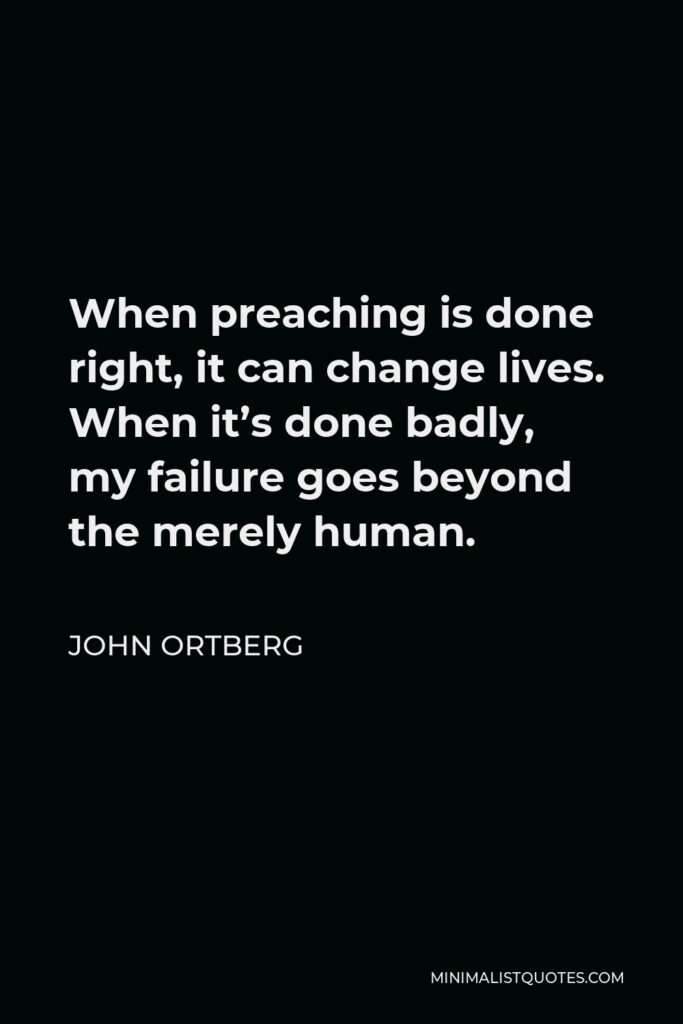

When preaching is done right, it can change lives. When it’s done badly, my failure goes beyond the merely human.
JOHN ORTBERG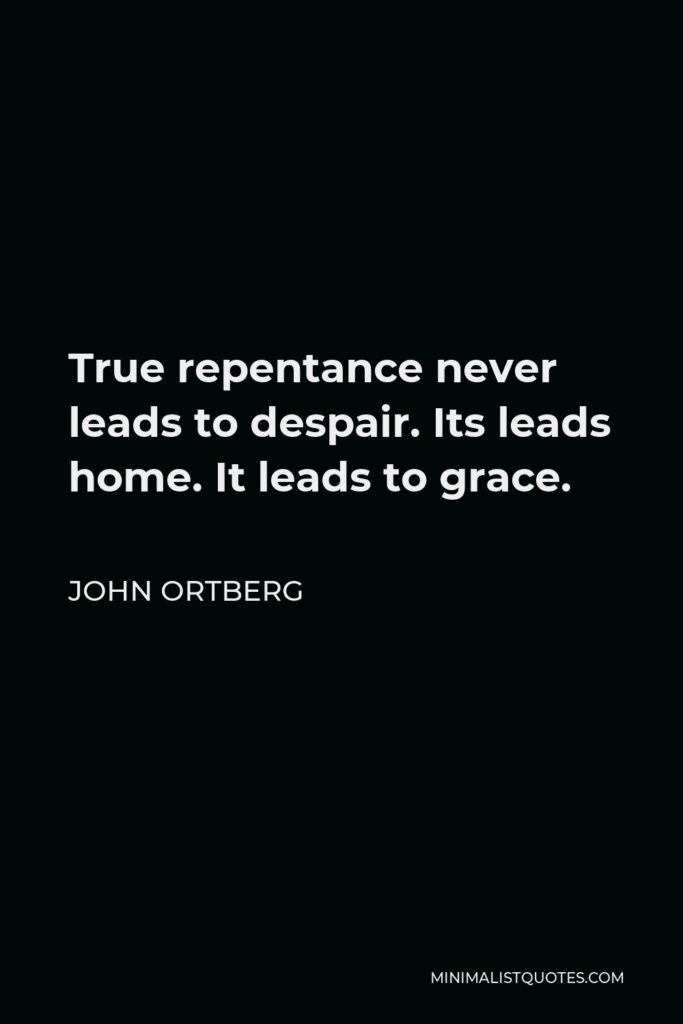

True repentance never leads to despair. Its leads home. It leads to grace.
JOHN ORTBERG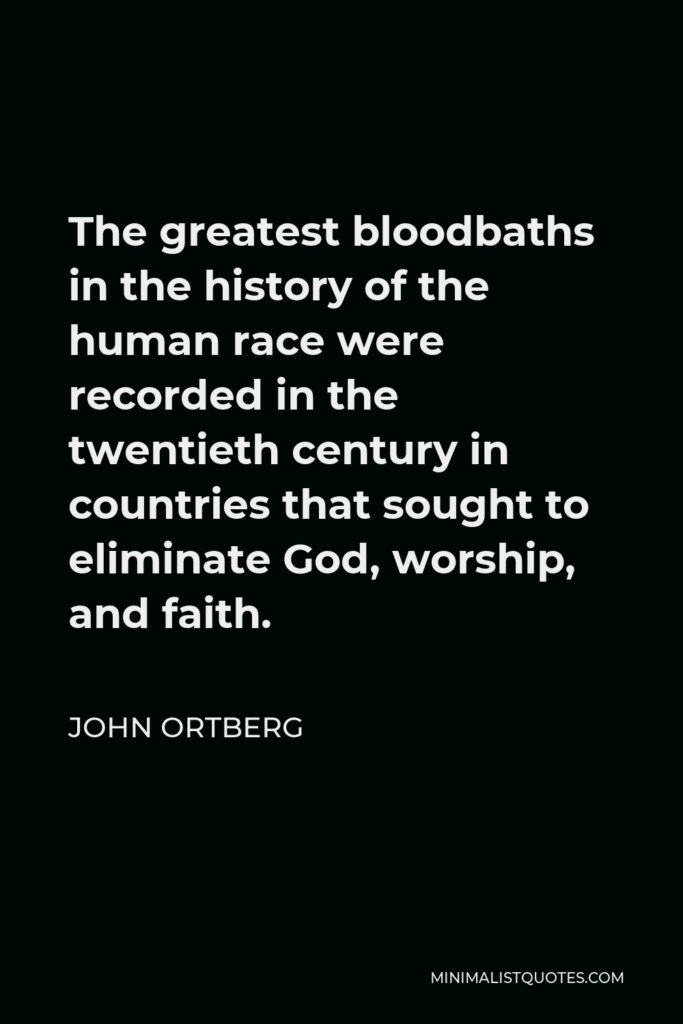

The greatest bloodbaths in the history of the human race were recorded in the twentieth century in countries that sought to eliminate God, worship, and faith.
JOHN ORTBERG

God is a God of endless opportunities to do good; the God of the open door.
JOHN ORTBERG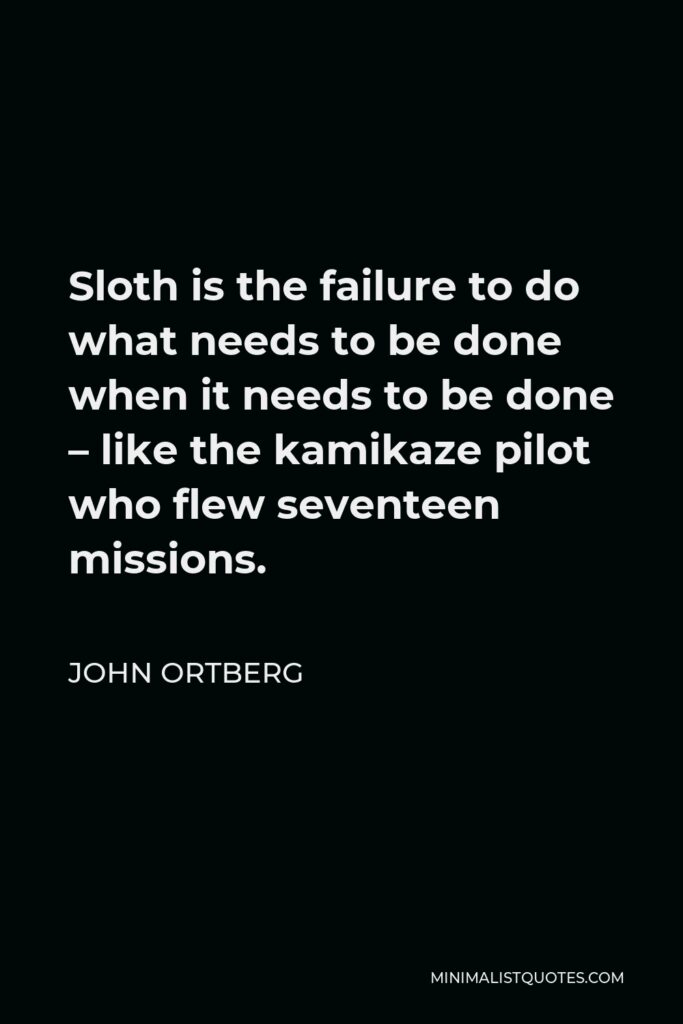

Sloth is the failure to do what needs to be done when it needs to be done – like the kamikaze pilot who flew seventeen missions.
JOHN ORTBERG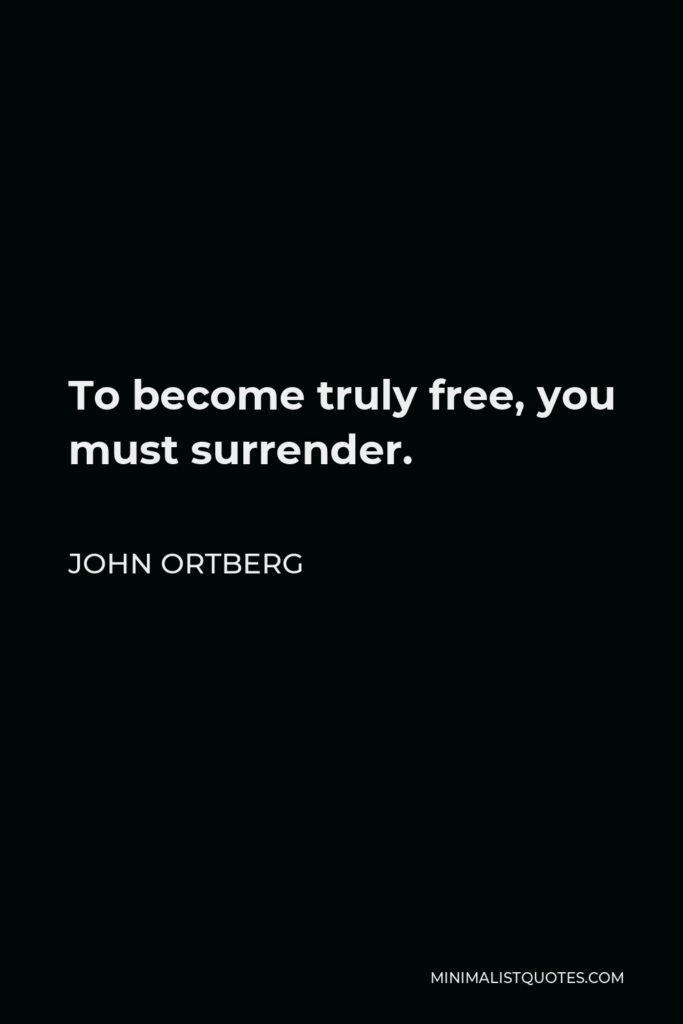

To become truly free, you must surrender.
JOHN ORTBERG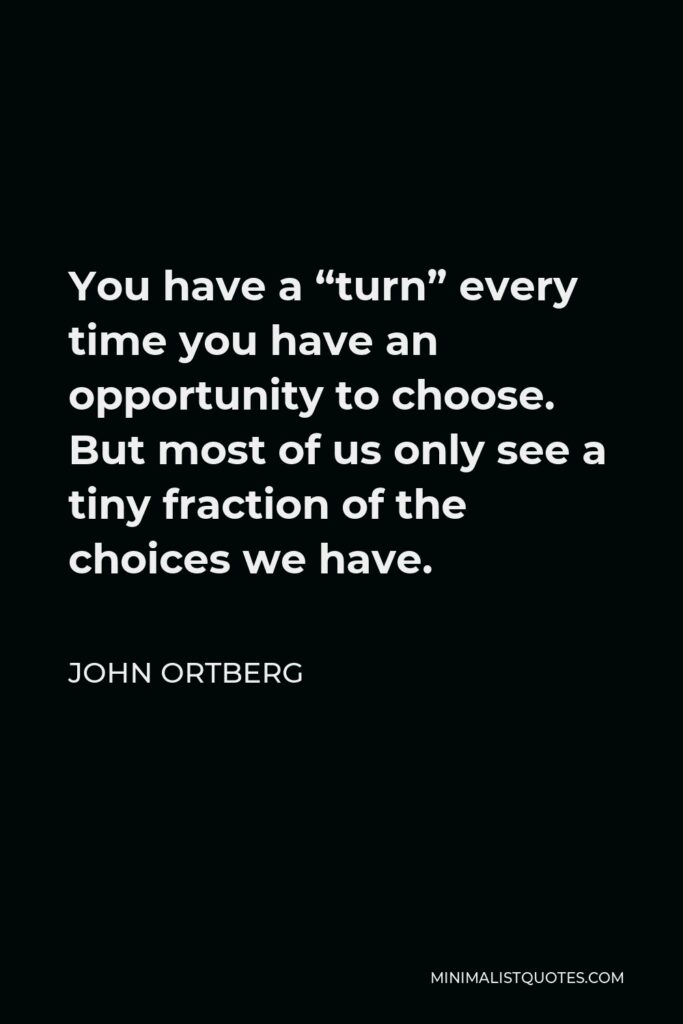

You have a “turn” every time you have an opportunity to choose. But most of us only see a tiny fraction of the choices we have.
JOHN ORTBERG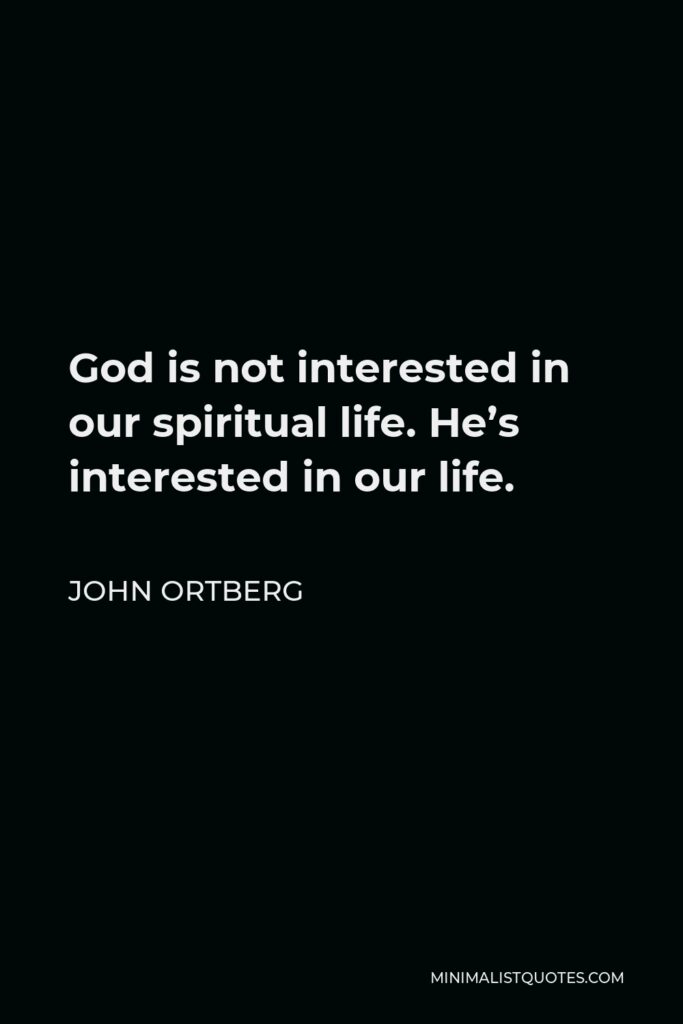

God is not interested in our spiritual life. He’s interested in our life.
JOHN ORTBERG

You can only love and be loved to the extent that you know and are known by somebody.
JOHN ORTBERG

Make your life about something bigger than your life.
JOHN ORTBERG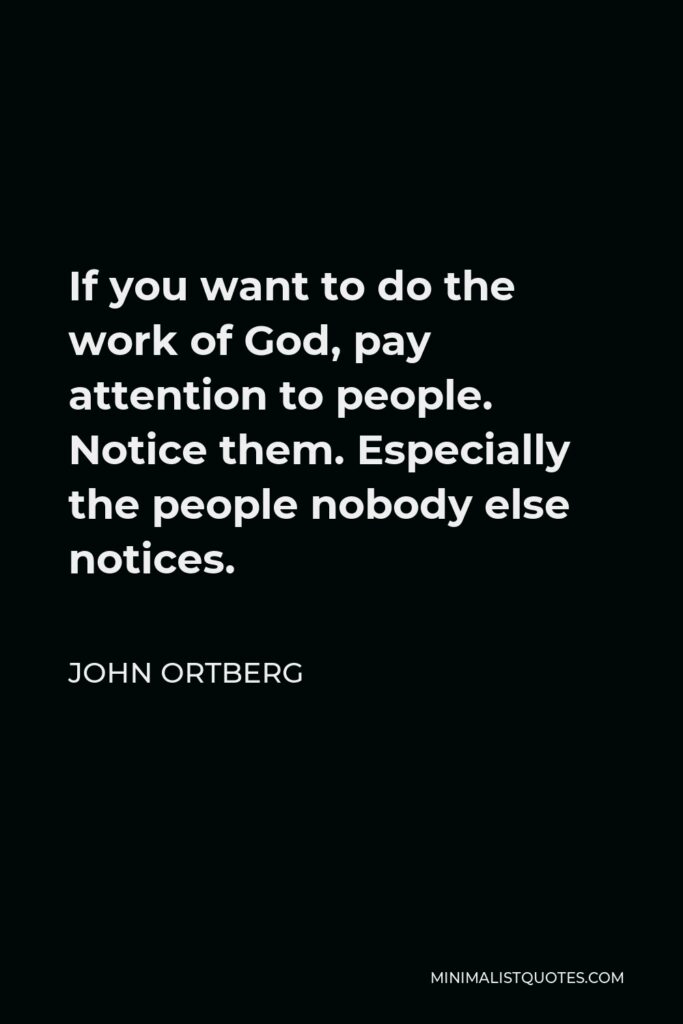

If you want to do the work of God, pay attention to people. Notice them. Especially the people nobody else notices.
JOHN ORTBERG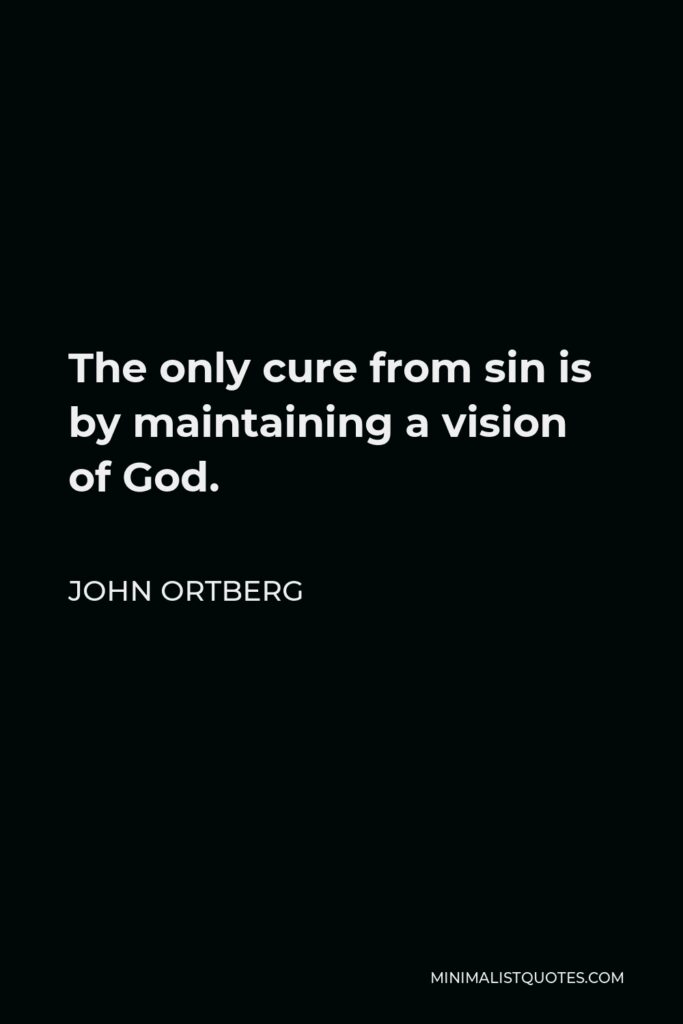

The only cure from sin is by maintaining a vision of God.
JOHN ORTBERG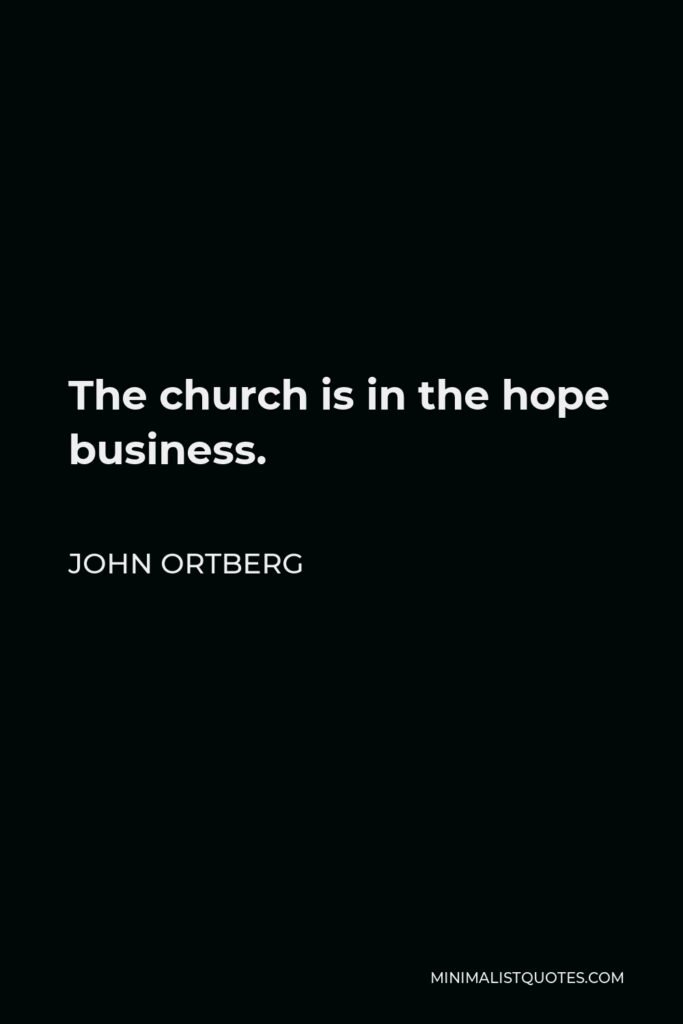

The church is in the hope business.
JOHN ORTBERG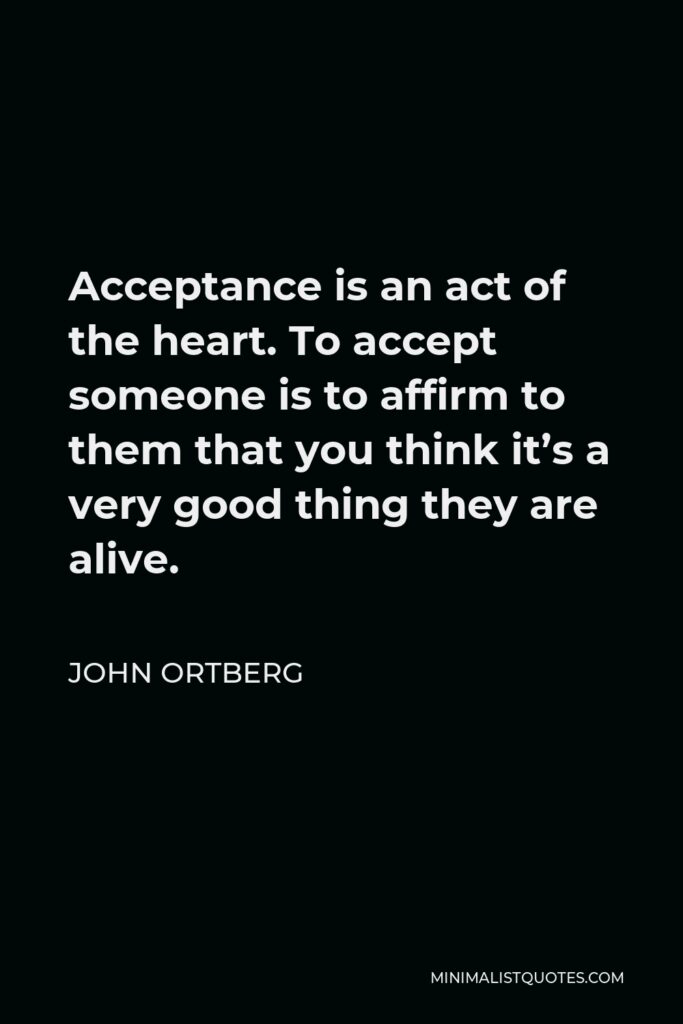

Acceptance is an act of the heart. To accept someone is to affirm to them that you think it’s a very good thing they are alive.
JOHN ORTBERG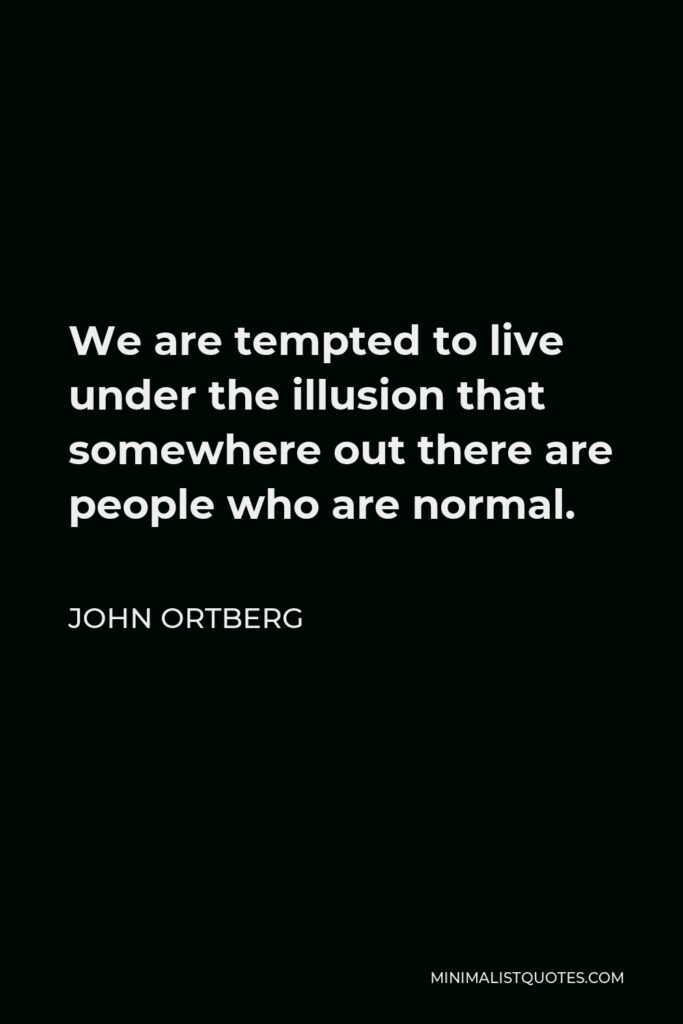

We are tempted to live under the illusion that somewhere out there are people who are normal.
JOHN ORTBERG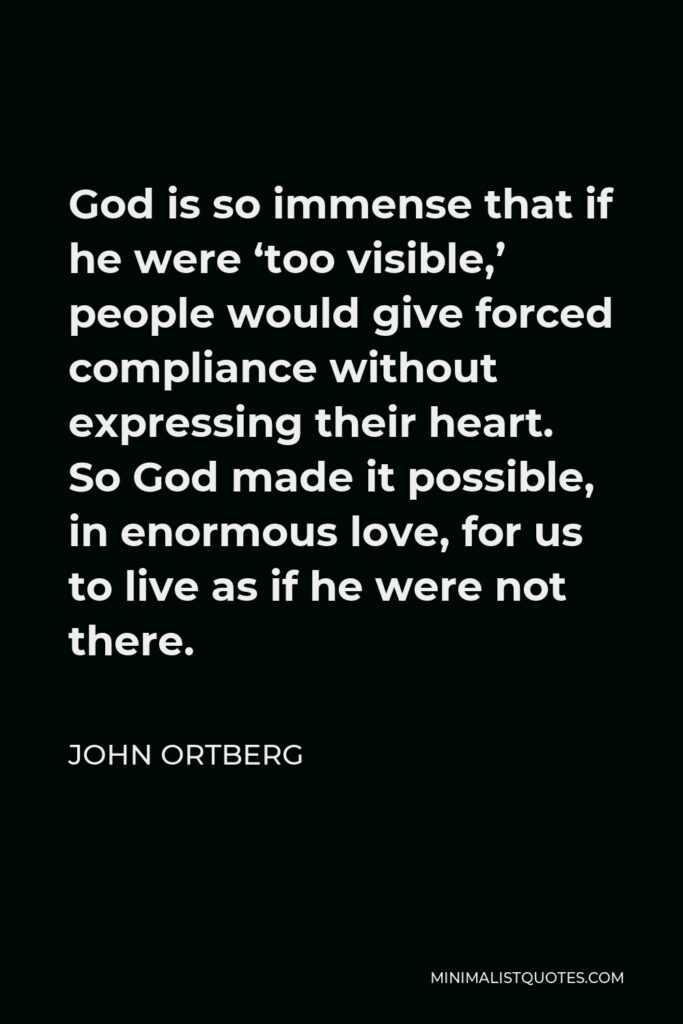

God is so immense that if he were ‘too visible,’ people would give forced compliance without expressing their heart. So God made it possible, in enormous love, for us to live as if he were not there.
JOHN ORTBERG